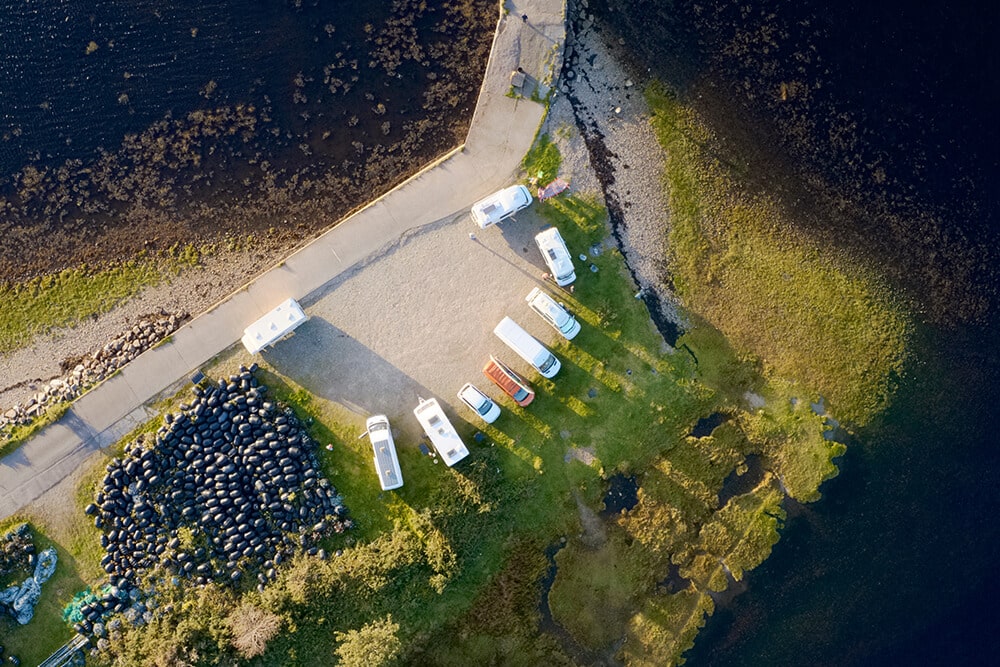
Each year, the Appleby Horse Fair – running from Thursday, June 6th to Wednesday, June 12th, draws up to 50,000 travellers to Appleby-in-Westmorland. This influx also brings challenges for local landowners and communities as many travellers set up illegal camps on private land to and from the fair. Understanding these challenges and knowing how to handle them is crucial.
Traveller Disruptions
The Appleby Horse Fair often leads to disruptions as travellers make their way to and from the event. Overcrowded temporary stopping places result in unauthorised encampments on private lands, straining local infrastructure.
Early arrivals overwhelm sanitation, water supplies, and traffic management, making it difficult for authorities to maintain order and cleanliness.
Unauthorised campsites on areas such as golf courses, school grounds and agricultural land cause significant property damage, leaving landowners with costly repairs and clean-ups.
This influx can also heighten tensions within local communities, creating friction and social unrest. Additionally, illegal campsites can harm the environment through littering and other hazards, degrading green spaces and harming wildlife.
Potentially Affected Areas
Travellers journey to the Appleby Horse Fair from various parts of the UK, particularly from regions such as South Lakeland, Cumbria, and North Yorkshire.
Typical routes include the A685 and sections of the A66, with popular stopping places at Devil’s Bridge in Kirkby Lonsdale and Middleton Common. However, these areas are often not enough to accommodate the influx in numbers, leading to unauthorised camping on private land en route.
Travellers will often set up illegal camps in the Northwest of England. Key risk areas include Manchester’s outskirts and Cheshire towns such as Knutsford and Northwich along the A556 and A57.
Lancashire’s routes through Preston and Lancaster, Greater Manchester towns like Wigan and Bolton, and Merseyside areas around Liverpool and St. Helens, particularly along the M62, are also at risk.
How Marpol Security Can Help
The Criminal Justice and Public Order Act 1994 outlines the legal steps landowners can take to remove travellers from private land. Marpol Security specialises in managing these complex situations, offering landowners efficient and legal eviction services.
Here’s how Marpol can assist:
24/7 Trespass Response Team: Marpol’s 24/7 trespass response team can be with you quickly and efficiently to take action against unlawful encampments and minimise disruption.
Nationwide Coverage: With a presence across the UK, we can deploy our highly trained security professionals to any location quickly and efficiently, providing a rapid response to emerging situations.
Subscription and Ad-hoc Services: We offer subscription-based and ad-hoc services catering to different needs. The subscription service ensures a pre-planned response, while the ad-hoc service provides flexibility for less frequent incidents.
Fully Trained Security Professionals: The Marpol team includes licensed, highly trained security professionals skilled in handling various trespassing and traveller scenarios, ensuring a safe and effective resolution.
Support Network: Marpol’s Trespass Response Team is backed by a robust 24/7 support network, including mobile patrols, to manage escalated situations effectively.
Court Appointed Bailiffs: Marpol can provide court-appointed bailiffs to serve eviction notices and negotiate voluntary exits with the travellers. If this fails, we conduct a forced eviction with the assistance of tow trucks, ensuring a swift and decisive resolution.
K9 Units: For heightened security, Marpol provides K9 units that can patrol and protect your site, offering an added deterrent to any threats posed by unlawful encampments, such as theft or vandalism.
Rapid Response Drivers: Our rapid response drivers are crucial in preventing further intruders from accessing your private land and maintaining the security and integrity of your property.
Why Choose Marpol?
By partnering with Marpol Security, landowners can protect their property and ensure a legal, efficient resolution to traveller encampments, especially during high-traffic events like the Appleby Horse Fair.

